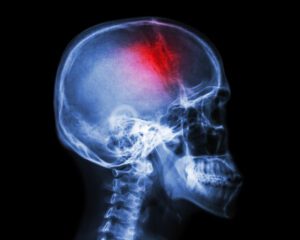
Both hypoglycemia and hyperglycemia can cause brain injury. However, the way these two conditions cause neurological damage does differ. In general, hypoglycemia (low blood sugar) is much more dangerous. Extremely low blood sugar can do permanent damage and cause a severe acquired brain injury (ABI) in a short time. Hyperglycemia (high blood sugar) also has negative effects, but generally does harm over time.
How Hypoglycemia Causes ABI
Blood sugar is the fuel your body needs to keep functioning properly. If there is not enough fuel in your system, or some parts of your body are deprived of fuel, this could cause problems with normal functioning, as well as long-term damage.
When we consider your brain as a part of this system, it is easy to see how your brain might need to prioritize functions when there is very little blood glucose in your body. Hypoglycemia can quickly result in seizures, coma, and even death if not treated immediately.
The lower your blood sugar and the longer it takes before you receive treatment, the more likely you are to suffer moderate or severe brain injury from this type of episode. Seniors and those who go through hypoglycemic episodes frequently are at an increased risk.
How Hyperglycemia Causes Damage to the Brain
Just like low blood sugar, extremely high blood sugar can also lead to brain injuries. Unlike hypoglycemia, these injuries tend to occur over time as the blood sugar spikes again and again. This type of damage occurs much slower and can be more difficult to recognize.
Hyperglycemia damages the blood vessels, causing a wide range of problems, from peripheral neuropathy to issues with the small blood vessels that feed the brain. When the brain cannot get the full supply of blood it needs, it is damaged. Over time, you could develop symptoms of brain injury, sometimes called vascular cognitive impairment or vascular dementia. In some cases, you can lapse into a diabetic coma.
Symptoms Associated with Brain Damage from Blood Sugar Levels
While brain injuries are difficult to predict and can affect different people in vastly different ways, some common symptoms may point to an ABI related to hypoglycemia. These include:
- Paralysis on one side of the body, as seen in some stroke victims.
- Memory loss.
- Problems communicating, including talking and writing.
- Decreased ability to think abstractly.
- Problems with dexterity, mobility, and muscle coordination.
- Trouble with balance.
Symptoms of vascular dementia often appear similar to the symptoms you might expect with other types of dementia. Because the symptoms appear slowly, it may be difficult to recognize them. Symptoms include:
- Cognitive difficulties
- Memory loss
- Problems with deep and abstract concepts
- General forgetfulness
If you have diabetes, or otherwise suffer from hypoglycemia or hyperglycemia, it is imperative you keep your blood sugar under control as much as possible. If you are struggling to maintain good blood glucose numbers, talk to your doctor.
For cases of hypoglycemia, it is important to seek medical help right away if you cannot eat or drink something to reverse your low blood sugar. You may need to call an ambulance if your loved one with hypoglycemia is unconscious.
If you or a loved one has experienced hypoglycemia or hyperglycemia-related acquired brain injury, call us today at (800) 917-5888. A member of our team is standing to discuss your options.
Fighting to Get Back to Normal After an ABI
If you suffered a brain injury during a hypoglycemic episode, you may be able to regain strength and recover some lost skills through therapy or rehabilitation. Your therapists will work with you to help you relearn basic tasks and adapt to any lasting impairments.
Some common therapies you may need include:
- Physical therapy
- Cognitive therapy
- Occupational therapy
- Speech therapy
If you or a loved one suffered a moderate or severe brain injury after an extremely low blood sugar episode, you may require inpatient rehabilitation or even long-term ongoing care to recover from your brain injury. Extended periods where the body is without the fuel it needs can cause the brain to suffer major damage.
The best way to avoid developing a serious brain injury when you have a hypoglycemia episode is to increase your blood sugar as soon as possible. If you cannot eat food or drink, this will require a trip to the hospital for intravenous dextrose. This is an emergency situation and warrants calling an ambulance.
Recovering Compensation for an ABI Related to Blood Sugar Levels
Getting immediate care during a blood sugar crisis is the only way to prevent a significant brain injury or even death. If you or a member of your family suffered an ABI after delayed treatment or diagnosis, you may be able to pursue legal action against the doctor or hospital.
With more than 20 years of experience handling these types of medical malpractice claims, a brain injury lawyer from the Newsome | Melton team can help you understand your rights and go after the payout you deserve. We offer free case reviews.
Call our team today at (800) 917-5888. A member of our team is standing by 24 hours a day to take your call.
